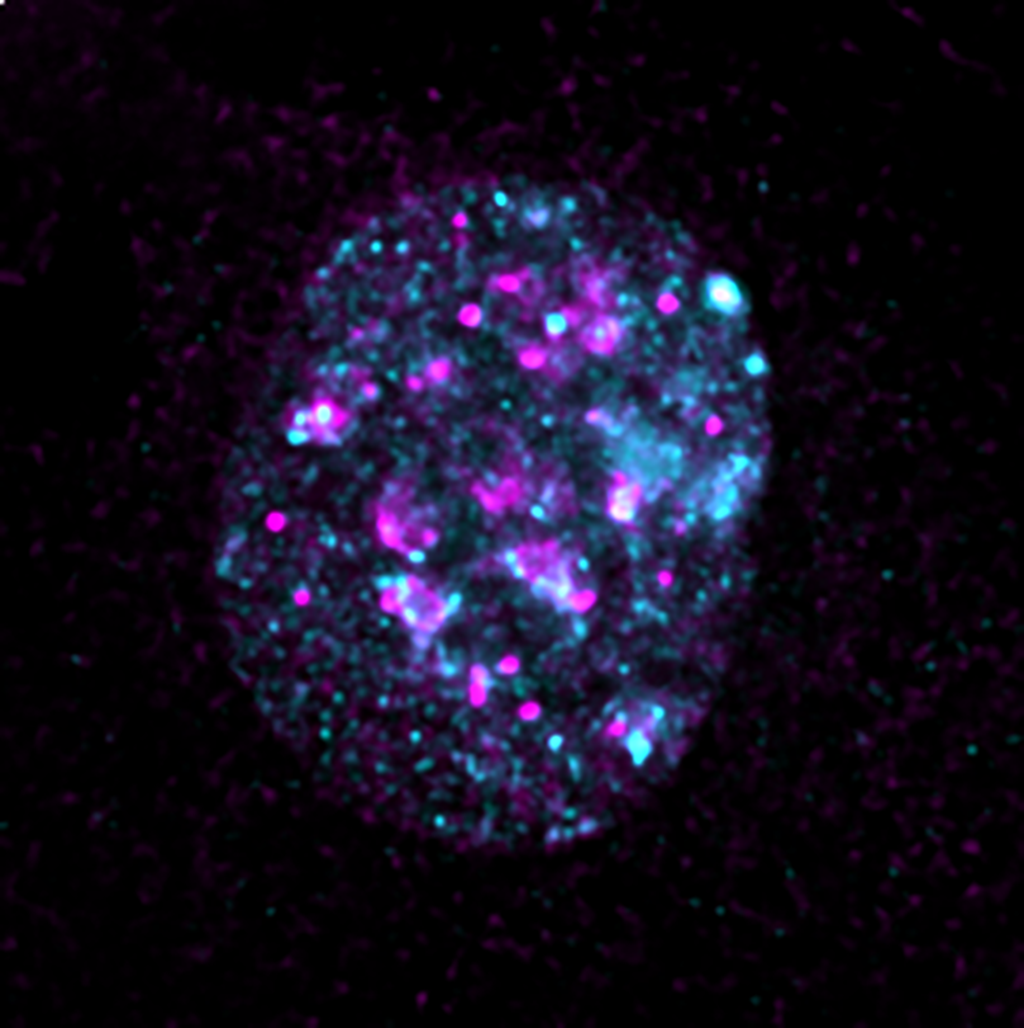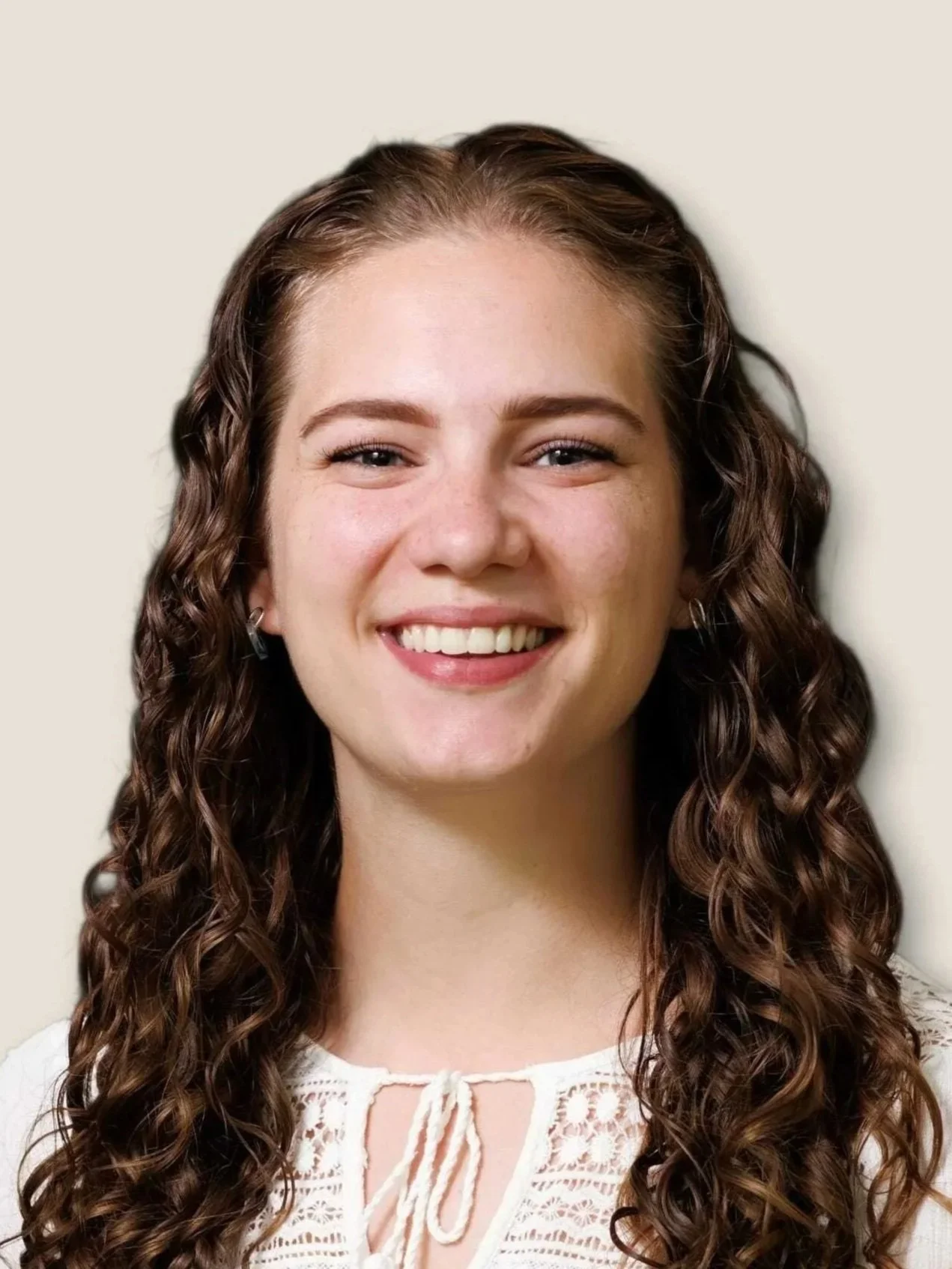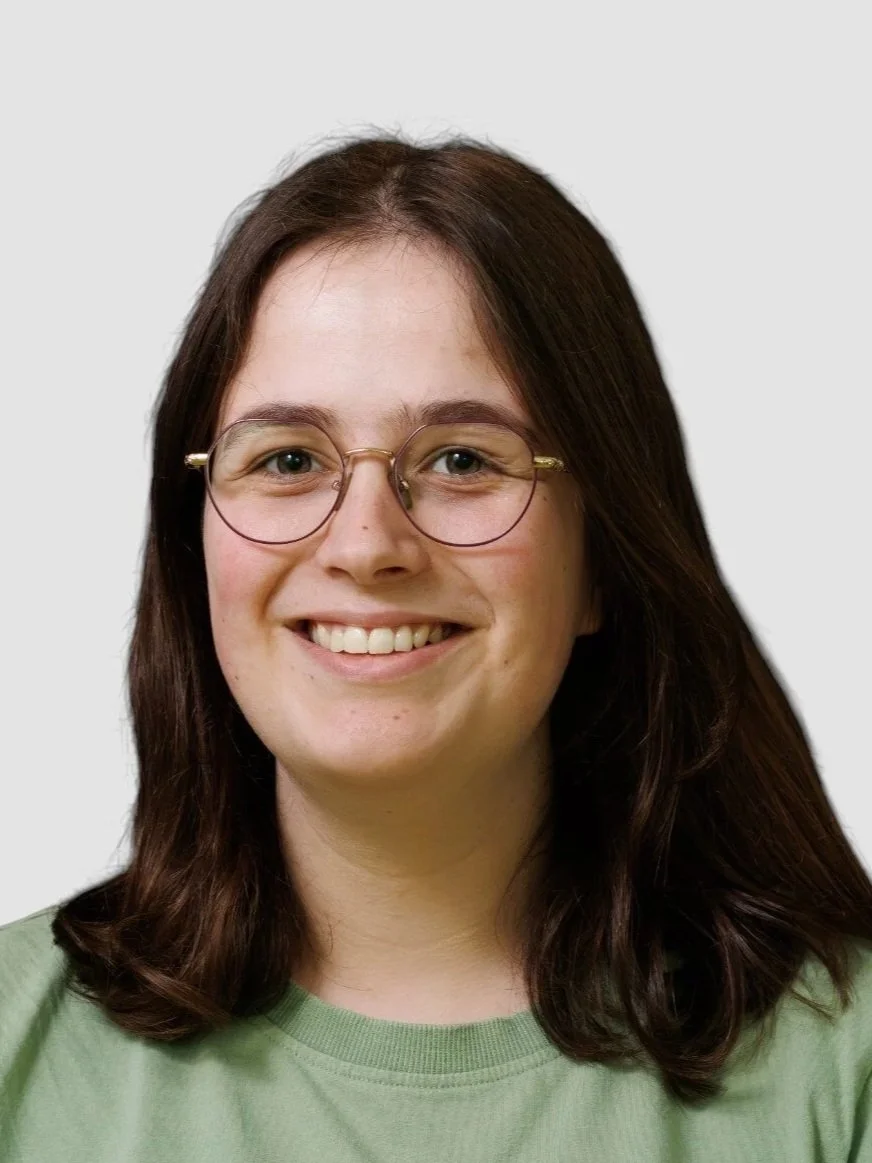
Janssen Lab at UMC Utrecht
Chromatin dynamics in the maintenance of genome stability.
The eukaryotic nucleus contains a plethora of distinct chromatin domains, which differentially regulate the functions of the underlying DNA sequences. These chromatin domains are crucial to organismal development and disease prevention.
Our lab aims to understand how different chromatin environments, in particular the silenced heterochromatin domains, contribute to the maintenance of genome stability. We use multi-disciplinary approaches, integrating epigenetics with cell biology and biochemistry. Our research could have important implications for understanding the role of chromatin misregulation in disease -development and -treatment.
Research
Check out Aniek’s pitch or layman lecture to learn more about our work.
Chromatin domain-specific break systems to study DNA damage repair
Targeted systems that induce locus-specific DNA damage are an extremely useful tool for performing in depth analyses of the DNA damage response in various (hetero) chromatin regions. We employ and develop new locus-specific DNA damage systems in both Drosophila animals and mammalian cells. We use these systems in combination with high-resolution live tissue imaging, in depth sequencing as well as genetics. Our goal is to understand how different chromatin regions influence repair pathway usage, repair kinetics and movement of damaged sites in the 3D nuclear space.
Cancer-associated chromatin changes and genetic instability
Epigenetic changes and mutations in chromatin proteins are a hallmark of cancer. However, how cancer-associated epigenetic changes can contribute to genetic instability remains largely unknown. We are investigating the effects of cancer-associated heterochromatin changes on genome stability, and will in the future examine the potential of exploiting these changes in anti-cancer strategies.
The role of chromatin modifiers in DNA damage repair
Different chromatin regions display major differences in DNA compaction, histone modifications and biophysical properties. This indicates that different chromatin domains require different local chromatin changes at the damaged site to promote proper DNA damage repair. We are using high-resolution live imaging, chromatin assays, as well as in vitro-based mass-spectrometry approaches to understand the role of damage-associated chromatin modifiers and histone modifications in repair.
Publications
Latest work
Yuheng Huang, Yi Gao, Kayla Ly, Leila Lin, Jan Paul Lambooij, Elizabeth G. King, Aniek Janssen, Kevin H.-C. Wei, Yuh Chwen G. Lee. Polymorphic transposable elements contribute to variation in recombination landscapes. PNAS (2025)
Marieke R. Wensveen, Aditya A. Dixit, Robin van Schendel, Apfrida Kendek, Jan Paul Lambooij, Marcel Tijsterman, Serafin U. Colmenares and Aniek Janssen. Double-strand breaks in facultative heterochromatin require specific movements and chromatin changes for efficient repair. Nature Communications (2024)
Apfrida Kendek *, Arianna Sandron *, Jan Paul Lambooij, Serafin U. Colmenares, Severina M. Pociunaite, Iris Gooijers, Lars de Groot, Gary H. Karpen and Aniek Janssen. DNA double-strand break movement in heterochromatin depends on the histone acetyltransferase dGcn5. Nucleic Acids Research (2024)
People
Aniek Janssen
Group leader — a.janssen-2@umcutrecht.nl
“After enjoying the beautiful nature as well as science in Northern California during my postdoctoral work (UCB/LBNL), I moved back to the Netherlands in 2019 to start my own lab. Besides talking about flies and heterochromatin, I am a big fan of hiking and running.”
Jan Paul Lambooij
Senior research technician —j.p.lambooij@umcutrecht.nl
“After working for almost 20 years at the Dutch Cancer Institute, I joined the group of Aniek Janssen at the UMC-Utrecht in April 2020. We investigate the role of heterochromatin in the maintenance of genome stability, and prevention of cancer, using flies and human cell lines. In my function as lab manager/technician I’m responsible for the structure and organisation of the lab and support the members of our group. In my free time I like to play hockey and I play guitar in a band.”
Dylan Haynes-Simmons
Bioinformatician — d.j.haynes-simmons@umcutrecht.nl
“As a bioinformatician in the Janssen lab, I build and use computational tools to investigate heterochromatin biology and its role in influencing genome stability and disease. With a BSc in Biology from the University of Miami and a MSc in Bioinformatics from VU Amsterdam and the University of Amsterdam, I enjoy finding patterns and extracting insights from large-scale biological datasets. When I’m not coding or analysing data, I’m usually at the gym, lost in a non-fiction or science-fiction book, or watching a badminton or NBA game.”
Lucie van Leeuwen
Postdoc — l.a.g.vanleeuwen-6@umcutrecht.nl
“I joined the Janssen lab to study the interplay between redox regulation, heterochromatin dynamics and ageing. I first became acquainted with Drosophila and redox signalling during my PhD studies in the Cochemé lab (MRC LMS/Imperial College London). In the Cochemé lab, I studied redox regulation of nutrient signalling pathways in ageing and metabolism. In my spare time I enjoy spending time with my kids, going out with friends, listening to the Beatles, and watching British tv series.”
Apfrida Kendek
PhD student — a.kendek@umcutrecht.nl
“My project will focus on DNA repair in heterochromatic regions using Drosophila as a model organism. I was born in Indonesia but have been living in the Netherlands in the last 10 years. I studied Biology during my bachelor and I followed the master program Molecular and Cellular Life Sciences at Utrecht University. In my spare time I love to try out some (Indonesian) recipes and take care of my small garden where I plant vegetables and flowers.”
Arianna Sandron
PhD student — a.sandron@umcutrecht.nl
“For my project, I will investigate the double-strand break (DSB) repair mechanisms of constitutive heterochromatin in Drosophila. My curiosity about DNA damage repair began while working on my Bachelor’s degree thesis, for which I focused on the response to DNA damage at the telomeres. Later on, as a student of the Molecular and Cellular Life Sciences (MCLS) Master’s Program at Utrecht University, I pursued my interest in the field by working on DSB repair at the centromeres.
In my free time, I enjoy cooking (and eating), while I am also enthusiastic about anything movie-related and art exhibitions.”
Aditya Dixit
PhD student — a.a.dixit-2@umcutrecht.nl
"After an integrated BS-MS in Biology from IISER Bhopal, India and a Master’s project in the Janssen lab, I will continue for a PhD starting 1st August 2022. I will focus on the interplay between the cell cycle and heterochromatin replication, maintenance and repair in mammalian cells, in health and cancer. Outside the lab, I enjoy the company of animals, including Drosophila. Playing and following chess, the musical instruments harmonium & flute and a variety of sport are my go-to activities. Always an explorer!”
Maureen van Rooijen
PhD student — m.c.h.vanrooijen-11@umcutrecht.nl
“After finishing my studies in Biomedical Sciences I am excited to apply my enthusiasm for molecular biology during a PhD in the Janssen lab. In my project I will be studying the mechanisms of double strand break repair in facultative heterochromatin, using Drosophila as a model system.
Outside the lab, I enjoy playing (beach)volleyball, exploring our country by bike, or heading abroad to hike up some beautiful mountains.”
Irene Rou
MSc student — I.M.Rou@umcutrecht.nl
"I am studying the master 'Cancer, Stem Cells and Developmental Biology' and joined the Janssen lab for my major internship. My project focusses on studying tissue-specific heterochromatin dynamics during ageing and their role in regulating fly lifespan with Lucie as my supervisor.
In my spare time I like to spend time with my friends and family, read a book or go for a run.”
Marianne van der Haven
MSc student — M.A.vanderHaven-2@umcutrecht.nl
“After my bachelor Biomedical Sciences, I started the master Cancer, Stem Cells and Developmental Biology at Utrecht University. I joined the Janssen lab for my major internship. I will work with Arianna on double-strand break repair in constitutive heterochromatin in Drosophila.
In my spare time, I like to knit, go on a hike or watch a movie.”
Lab alumni
Marieke Wensveen (PhD student 2020 - 2025) - currently postdoctoral fellow in Fitz-James lab, Oxford, UK
Marit van Bueren (PhD student 2020 - 2025) - currently Analist at Catalyze Group
Former BSc/MSc internship students
Janina Funk 2025 | Akke Mei Vleerlaag 2024 - 2025 | Khadija Zbair 2024 - 2025 | Dylan Haynes - Simmons 2023 - 2024
Pavlina Micha 2023 | Kuscha Tabatabai 2022 - 2023 | Josje Tettero 2022 - 2023
Mido Al Shamali 2021 - 2022 | Aditya Dixit 2021 - 2022 | Sharon Klomp 2020 - 2021
Iris Gooijers 2020 - 2021 | Severina Pociūnaité 2019 - 2020 | Lars de Groot 2019












![Aditya img[2].png](https://images.squarespace-cdn.com/content/v1/5fe0903764c3811c6212f7da/1628261711675-TA5H79FD018548E83LMX/Aditya+img%5B2%5D.png)





